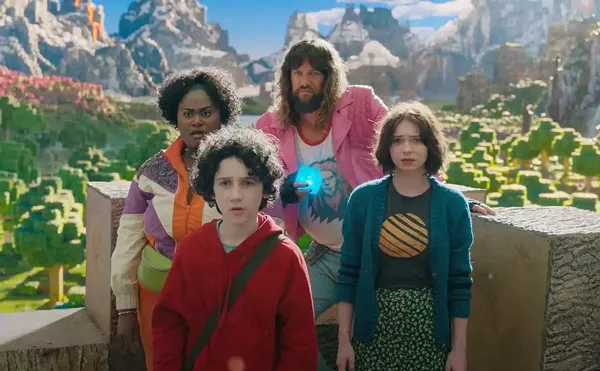To suggest that audiences going to see Our Daily Bread might want to skip the usual dinner and a movie combination is to make Austrian filmmaker Nikolaus Geyrhalter's point for him. His rigorous, astringent documentary about factory farming shows us the industry of modern food production in a way that — like Eric Schlosser's Fast Food Nation and Michael Pollan's The Omnivore's Dilemma — will make you rethink what's on your plate.
Unlike those nonfiction books, Bread makes its case viscerally, with images unadorned by explanation or context. There's no narration, no indication of place or time. (It was shot in various European countries, from 2003 to 2005.) Geyrhalter views documentary conventions as spoon-feeding, and he doesn't want this meal to be easily digested. So he's eliminated the standard who, what, where, and why, leaving us only the how.
From open fields to industrial greenhouses, from breeding facilities to slaughterhouses, from salt mine to fjord, Geyrhalter turns his unwavering gaze on the mass production of dietary staples. (Despite the title, bread isn't on his shopping list.) As cinematographer and director, Geyrhalter employs the startling clarity of high-def video to create images that are both fervent and dispassionate.
On a purely aesthetic level, Bread is a lesson in cinematic framing, exquisitely capturing the fearful symmetry of mechanized efficiency. Several sequences have the cold, ruthless sterility of science fiction, like earthly outtakes from 2001: A Space Odyssey. Geyrhalter has an unerring eye, but not much heart. He observes everything clinically, and doesn't use any music, which is commonly employed to provide emotional cues.
In this sense, Geyrhalter's attitude mirrors the slaughterhouse workers whose nonchalant approach to their grisly work he documents in detail. Bread contains long sequences showing the processing of chicken, pork, beef and fish as a series of disassembly lines where each is systematically broken down into parts, and blood is just something to be hosed down at the end of the day.
The actual killing of animals is seen merely as the moment when they can no longer move themselves and need to be transported: pigs walk into one side of a machine, and their bodies exit on a conveyer belt on the other side. Chickens have their throats cut, cattle get it between the eyes. All part of the process, and all shot with the same careful, distant air as potatoes getting harvested or greenhouse cucumbers getting clipped.
Editor Wolfgang Widerhofer is credited with "dramatic structure," and he does mix things up so the film isn't a constant gorefest. But Geyrhalter's use of long, static shots — especially those of factory workers eating lunch, being transported to work, or having (untranslated) conversations in many languages — makes it feel much longer than 92 minutes.
Alternately fascinating, horrifying and boring, Our Daily Bread is heady, gut-wrenching cinema. If we are what we eat, it proposes, then we should take a good long look at our food and ourselves.
Showing at the Detroit Film Theatre (inside the DIA, 5200 Woodward Ave., Detroit) at 9:30 p.m., Friday and Saturday, Sept. 21-22. Call 313-833-3237.
Serena Donadoni writes about film and culture for Metro Times. Send comments to letters@metrotimes.com.






